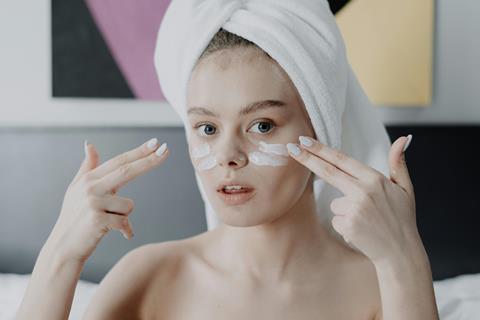Gen Alpha children are now investing heavily in anti-aging serums, exfoliants, and even chemical peels - Lisa Skinner helps Christian parents think through how to respond

It was November 2024, that time of year when I ask my children for their Christmas lists to avoid any disappointment on 25th December. But this year felt somewhat different with my three daughters. As I scanned their lists, I found myself searching in vain for the familiar comforts of LOL Dolls, Barbie Dreamhouses, and Lego Friends sets. Instead, I was met with a line-up of brand names completely foreign to me — Laneige, Bubble, Rhode, Sol de Janeiro, Drunk Elephant, Fenty, Mario Badescu (had Ken been replaced by a Romanian counterpart?). Then it struck me, with a twinge of sadness, that my daughters had quietly moved beyond the innocent world of toys, trading them for the sophisticated realm of skincare and beauty products. Even my nine-year-old, surprisingly well-versed in the world of luxury brands, appeared caught up in this early wave of consumer savvy. It left me wondering: were they growing up too fast, or was I simply unprepared for how childhood itself has evolved?
The age of Sephora kids
While toy sales in the UK have declined, the baby and child skincare market is projected to hit $380 million by 2028. The unsettling reality is that we’ve entered the era of ‘Sephora kids’ — tweens obsessed with skincare routines. Gen Alpha children are now investing heavily in anti-aging serums, exfoliants, and even chemical peels — products that are far too harsh and advanced for their delicate, developing skin.
This level of self-awareness at such a young age feels completely alien to me. Growing up as the only girl among three brothers, any attempts I made at beautifying myself were usually met with ridicule. As a child of the ’80s, my teenage grooming regime was simple — a daily dab of Boots Own Brand Cucumber Toner and Cleanser, a spritz of The Body Shop’s White Musk or Dewberry if I was feeling fancy, a little book of blotting paper tucked into my schoolbag, and a much sought-after Lip Smacker Strawberry lip balm procured by a friend when visiting the States. Although I went to a co-ed school, I paid little attention to my appearance until Sixth Year — as evidenced in my official school photos. So, it leaves me puzzled — how is it that my three daughters, at just 15, 12, and even 9 years old, are already so attuned — almost preoccupied — with how they look?
whether intentional or not, companies like Bubble and Drunk Elephant have clearly ended up cultivating a much younger customer base
I recently attended a skincare event hosted by Dr Sam Bunting, a cosmetic dermatologist based on Harley Street and founder of the Dr Sam’s skincare line. During the Q&A session, I raised my worries about my young daughters’ unnecessary use of skincare products at such a tender age. Dr Bunting echoed my concerns, warning of the dangers posed by children using products formulated for mature skin. Potent active ingredients like retinoids and Vitamin C serums, she explained, can cause real harm to developing skin. She was openly critical of brands that lure tweens and teens with bright, playful packaging — whether intentional or not, companies like Bubble and Drunk Elephant have clearly ended up cultivating a much younger customer base.
Interestingly, the growing fixation among tweens and teens on achieving perfect skin parallels a global rise in acne diagnoses among young people. A recent study in the British Journal of Dermatology reveals that the UK ranks among the countries with the highest rates. Some experts suggest this surge is tied to the excessive — and often misguided — use of skincare products promoted by TikTok influencers.
However, this obsession with appearance goes well beyond skincare. It encompasses contouring trends, false lashes, fake tans, brow definition, gel nails, and costly makeup from luxury brands like Rare Beauty and Charlotte Tilbury. As a mother, I can’t shake the feeling that it’s all happening too fast, too early. It raises a deeper question: What narrative is our society — through marketers and influencers — shaping for our children? And more importantly, how can we, as Christian parents, ground them in the truth and wisdom of Scripture, equipping them to question these influences and liberating them from a superficial worldview?
What does the Bible have to say about beauty?
My husband and I are big fans of The Chosen series, which brings the gospel stories to life with Jonathan Roumie portraying Jesus. Recently, I joked that Roumie is far too handsome to convincingly play Jesus — a comment that my husband found hilarious. When he asked me to unpack my statement for him, I referred him to Isaiah 53:2 – “He had no beauty or majesty to attract us to him, nothing in his appearance that we should desire him.”
Unfortunately, even as Christians, we judge others by outward appearances — whether we are willing to admit it or not. While physical looks matter to us, Scripture makes it clear that appearance holds no weight with God. In 1 Samuel 16:7 God tells Samuel: “Do not consider his appearance or his height, for I have rejected him. The Lord does not look at the things people look at. People look at the outward appearance, but the Lord looks at the heart.”
Read more:
How do you talk to your teen about their appearance?
Should Christian parents be concerned about their children being on Instagram?
Beyond the endless scroll: Protecting your teen’s heart on TikTok
Helping your teen navigate Snapchat: A Christian parent’s guide to helping them flourish online
We know nothing about the physical appearance of Miriam, Rahab, Hannah, Ruth, Deborah, Mary of Bethany, Lydia, Priscilla or Phoebe, but we do know they were all beautiful in the eyes of God. Their beauty was not found in outward appearance, but in their character, faithfulness, and service. In contrast, those who were praised for their physical beauty often proved to be spiritual disappointments. Rebekah, though described as “beautiful” (Genesis 26:7), was also known for deceit and manipulation. Samson was physically impressive, particularly to women, but he allowed his desires to take priority over God’s will. Saul, likewise, was striking in appearance (1 Samuel 9:2), yet his disobedience caused great harm to Israel. When it came to Absalom — “there was no one so much to be praised for his handsome appearance. From the sole of his foot to the crown of his head there was no blemish in him” (2 Samuel 14:25). Yet Absalom was vain, ambitious, and rebellious — all of which led to his disgraceful death.
But what about Esther? I hear you cry. Wasn’t it her beauty that secured her favour with the king? It’s true that Esther’s beauty was a key factor in her rise to prominence. We’re told that she had a lovely figure and was beautiful (Esther 2:7), and we read in Esther 2:12, “Before a young woman’s turn came to go in to King Xerxes, she had to complete twelve months of beauty treatments prescribed for the women — six months with oil of myrrh and six with perfumes and cosmetics.” Extravagant beauty regimes are nothing new, it would seem. When the time came, the king was attracted to Esther more than to any of the other women; she won his favour and approval more than any of the other virgins (Esther 2:17). While she won the favour of everyone who saw her, we shouldn’t lose sight of the fact that it was Esther’s obedience and submission, her inner grace, that ultimately changed the course of history for the Jewish people.
I want Sephora to become less and Christ to become more to them. I want them to be women who fear the Lord
Time and time again, the words of the Bible urge us to lift our eyes off the temporal and instead invest in the eternal — and that includes beauty. The wisdom Solomon shares is that “Charm is deceptive, and beauty is fleeting; but a woman who fears the Lord is to be praised” (Proverbs 31:30).
Peter says, “Your beauty should not come from outward adornments, such as braided hair and the wearing of gold jewellery and fine clothes. Instead, it should be that of your inner self, the unfading beauty of a gentle and quiet spirit, which is of great worth in God’s sight” (1 Peter 3:3–4). Meanwhile, Paul reminds Timothy that “Physical exercise has some value, but spiritual exercise is much more important. It promises a reward in both this life and the next” (1 Timothy 4:8). The very fact that the biblical authors felt the need to emphasise these points shows that preoccupation with outward appearance is nothing new. These are timeless truths for every fallen generation.
As my daughters spend more time than I’d like staring at themselves in a mirror, I have the words of 1 Samuel 16:7 written around those mirrors. Like everything in life, I want them to strike the right balance. Every little girl experiments with blue eyeshadow and bright red lips, and that’s okay. But I want my daughters’ focus, first and foremost, to be on the beauty within. I want them to know that beauty is fleeting, but what is everlasting is the love God has for them — which is not based on anything they have or anything they do. I want them to be confident in their inner character and the gifts God has blessed them with — with which they can achieve incredible things. I want them to know they are loved not for how they look but for who they are. I want Sephora to become less and Christ to become more to them. I want them to be women who fear the Lord.
In today’s world, I believe we all need wisdom in how to properly edify our girls. I know I don’t always get it right. I’m conscious of how much time I spend at the gym, shopping, and grooming — and the example I’m modelling to my daughters. My own mother always talked about growing old gracefully. Only in recent years have I wrestled with what that looks like. As I reach for the anti-aging serums and contemplate the latest aesthetic treatments that so many are turning to, I must remind myself to embrace the wrinkles and give thanks for every year of life that they represent. I try to remember that grey hair is the splendour of the old (Proverbs 20:29), even as I try to hold it at bay. My prayer is that God might continue to teach me as I endeavour to teach my girls what true beauty looks like.


































